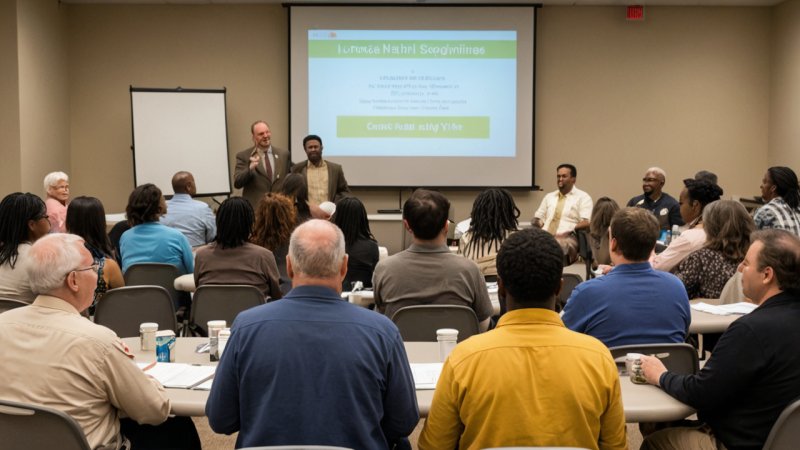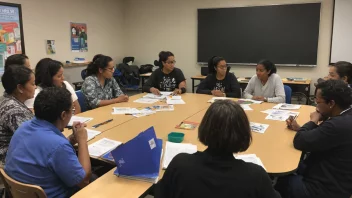As communities around the world face increasing environmental challenges, the role of local governments in promoting sustainability has never been more critical. Local governments have the unique ability to implement policies that directly affect the daily lives of their residents, making them essential allies in the fight against climate change and environmental degradation. This article explores effective strategies for engaging local governments in sustainability efforts, highlighting successful initiatives, and offering guidance on how citizens can play a pivotal role in this process.
The Importance of Local Government in Sustainability
Local governments serve as the frontline of governance, tasked with addressing immediate community needs while also planning for long-term sustainability. Their decisions impact everything from waste management and water conservation to urban planning and public health. By prioritizing sustainability, local governments can create resilient communities that are better equipped to handle environmental challenges.
Understanding the Role of Municipalities
Municipalities have the authority to enact laws, set priorities, and allocate resources that directly influence sustainability efforts. This includes:
- Policy Development: Local governments can develop and implement policies that promote renewable energy, reduce carbon emissions, and protect natural resources.
- Community Engagement: They can facilitate community discussions and gather input from residents to ensure that sustainability initiatives reflect the needs and values of the community.
- Partnerships: Local governments can forge partnerships with non-profits, businesses, and community organizations to leverage resources and expertise in sustainability efforts.
- Education and Awareness: They can promote awareness of sustainability issues through campaigns, workshops, and educational programs.
Strategies for Engaging Local Governments
Engaging local governments in sustainability efforts requires a multifaceted approach. Here are some effective strategies that individuals and community groups can employ:
1. Building Relationships
Establishing strong relationships with local government officials is crucial. This can be achieved by:
- Attending Town Hall Meetings: Regularly participate in town hall meetings to voice concerns and express support for sustainability initiatives.
- Networking: Connect with local officials, staff, and fellow community members who share a commitment to sustainability.
- Offering Support: Show support for local government initiatives by volunteering for programs or providing feedback on proposed policies.
2. Advocating for Policy Change
Advocacy is a powerful tool for influencing local government decisions. Consider the following actions:
- Research and Propose Solutions: Identify specific sustainability issues in the community and propose actionable solutions backed by research.
- Form Coalitions: Collaborate with other community groups to amplify your voice and present a united front on sustainability issues.
- Engage in Lobbying: Schedule meetings with local government officials to discuss sustainability issues and advocate for policy changes.
3. Mobilizing Community Support
A strong community voice can significantly influence local government decisions. To mobilize community support:
- Organize Events: Host community events focused on sustainability issues to raise awareness and rally support.
- Utilize Social Media: Leverage social media platforms to spread the word about sustainability initiatives and encourage community involvement.
- Petitions: Create petitions to demonstrate community support for specific sustainability initiatives, presenting them to local officials as evidence of public interest.
4. Participating in Local Government Processes
Being actively involved in local government processes can enhance engagement and influence decision-making. This includes:
- Joining Advisory Boards: Seek opportunities to join local advisory boards or committees focused on sustainability issues.
- Providing Public Comments: Take advantage of public comment periods during local government meetings to voice your opinions on sustainability initiatives.
- Engaging in Public Consultations: Participate in public consultations to provide input on proposed policies and programs.
Successful Initiatives: Case Studies
Examining successful initiatives can provide valuable insights into effective engagement strategies. Here are a few inspiring examples:
1. The City of San Diego’s Climate Action Plan
San Diego has developed a comprehensive Climate Action Plan aimed at achieving 100% renewable energy by 2035. The plan was created through extensive community engagement, including public workshops and stakeholder meetings. This collaborative approach ensured that the plan reflected the needs and aspirations of the community, making it a model for other cities.
2. The Green City Initiative in Seattle
Seattle’s Green City Initiative focuses on enhancing urban green spaces while promoting sustainability. The initiative engages local residents in tree planting, park maintenance, and environmental education. By fostering community involvement, the initiative has successfully improved local ecosystems and increased public awareness of environmental issues.
3. The Sustainable Communities Program in Toronto
Toronto’s Sustainable Communities Program encourages local neighborhoods to develop their sustainability plans. Through workshops and funding opportunities, the program empowers residents to take ownership of their local environment and implement sustainable practices. This grassroots approach has led to innovative solutions tailored to the unique needs of each community.
Challenges and Barriers
While engaging local governments in sustainability efforts is crucial, several challenges may arise:
1. Limited Resources
Many local governments operate under tight budgets, which can limit their ability to implement sustainability initiatives. Advocates must be prepared to present cost-effective solutions and demonstrate the long-term benefits of sustainability investments.
2. Political Resistance
Political dynamics can also pose challenges, especially if there is resistance to change or differing priorities among local officials. Building a broad coalition of support can help mitigate this issue.
3. Community Apathy
Engaging a disengaged community can be difficult. Advocacy groups must employ creative strategies to raise awareness and inspire action among residents.
Conclusion
Engaging local governments in sustainability efforts is a vital step towards creating resilient communities capable of addressing environmental challenges. Through building relationships, advocating for policy change, mobilizing community support, and participating in local government processes, individuals can play a significant role in promoting sustainability at the local level. By learning from successful initiatives and understanding the challenges that may arise, we can work together to create a sustainable future for our communities and the planet.






